The question “is addiction a disability” is more than just a legal inquiry—it signifies a transformative shift in how society views and treats substance use disorders. The classification of addiction as a disability under federal law has redefined access to care, protection, and support. The Americans with Disabilities Act (ADA) acknowledges addiction as a legitimate disability, thereby offering vital protections and rights to those grappling with substance dependence.
In Ohio, this recognition is particularly significant as the state continues to face substantial substance use challenges. The legal framework provided by the ADA lays down essential protections for individuals with addiction against discrimination in employment, housing, and public services.
Understanding addiction’s status as a disability in Ohio opens up avenues for:
- Legal protections against discrimination
- Access to reasonable accommodations in the workplace
- Rights to fair housing opportunities
- Eligibility for specific treatment programs
- Protection of medical privacy
For Ohio residents fighting against addiction, these disability rights can have a profound impact on their recovery journey. The intersection of addiction and disability law influences how treatment facilities like Cedar Oaks Wellness, employers, and public services handle substance use disorders in the Buckeye State. Cedar Oaks Wellness offers comprehensive addiction therapy programs that provide much-needed support and compassion for individuals seeking help.
Moreover, understanding the financial aspects of treatment can be daunting. Many people wonder, “Can you go to detox without insurance?” This article sheds light on accessing detox without insurance, exploring state-funded options, community resources, and financial assistance available for addiction treatment.
Understanding Addiction as a Disability Under the ADA
The Americans with Disabilities Act (ADA) recognizes substance use disorders as legitimate disabilities when they significantly limit one or more major life activities. This recognition applies to individuals who:
- Have a documented history of substance use disorder
- Are actively participating in a supervised drug rehabilitation program
- Have successfully completed a supervised drug rehabilitation program
Physical and Mental Impairments
Substance use disorders can create significant physical and mental impairments that affect daily functioning:
Physical Effects:
- Cardiovascular complications
- Liver disease
- Neurological damage
- Compromised immune system
- Chronic pain conditions
Mental Health Impact:
- Memory difficulties
- Cognitive processing issues
- Depression and anxiety
- Difficulty maintaining concentration
- Impaired decision-making abilities
The ADA’s definition of disability includes these impairments when they substantially limit major life activities such as:
- Working
- Learning
- Self-care
- Social interactions
- Basic motor functions
Legal Recognition Under ADA
The ADA provides protection for individuals with substance use disorders through a three-pronged approach:
- Current Definition: The person has a physical or mental impairment that substantially limits major life activities
- History/Record: The individual has documentation of such impairment
- Perceived Disability: The person is regarded as having such impairment
It’s important to note that while the answer to “is addiction a disability” is yes under the ADA, the law does not protect individuals who are currently engaging in illegal drug use. Instead, these protections extend to those who:
- Are in recovery
- Are receiving treatment for substance use disorder
- Have completed treatment programs
- Are participating in supervised rehabilitation programs
The ADA requires employers and organizations to provide reasonable accommodations for qualified individuals with substance use disorders, treating these conditions with the same legitimacy as other recognized disabilities.
Legal Protections for Individuals with Addiction in Ohio
Is addiction a disability? Under federal law, the answer is yes—and this recognition brings vital protections. Federal laws establish crucial safeguards for individuals battling addiction in Ohio. The Americans with Disabilities Act (ADA) provides comprehensive protection against discrimination in various aspects of life, including employment, public services, and accommodations.
Key federal protections include:
- Section 504 of the Rehabilitation Act prohibits discrimination in programs receiving federal funding
- Affordable Care Act Section 1557 ensures equal access to healthcare services
- Fair Housing Act protects against housing discrimination
- Family and Medical Leave Act guarantees job-protected leave for treatment
These laws create specific protections for individuals with addiction:
- Protection from termination based solely on past substance use
- Right to take medical leave for treatment programs
- Access to healthcare coverage without discrimination
- Equal consideration for housing applications
- Reasonable accommodations in workplace settings
The Ohio Civil Rights Commission enforces these protections at the state level, investigating complaints and ensuring compliance. Individuals facing discrimination can file complaints through:
- State administrative agencies
- Federal courts
- Equal Employment Opportunity Commission
- Department of Housing and Urban Development
Protected activities under these laws include:
- Seeking treatment for substance use disorders
- Participating in recovery programs
- Using prescribed medication-assisted treatment
- Attending counseling or support group meetings
These legal frameworks recognize addiction as a medical condition requiring protection and support, rather than punishment or exclusion. Employers, healthcare providers, and housing authorities must comply with these regulations or face potential legal consequences.
When Does Addiction Qualify as a Disability in Ohio?
The question “is addiction a disability” in Ohio is answered through both medical and legal standards. Addiction qualifies as a disability in Ohio when specific criteria are met. A licensed physician must diagnose the substance use disorder through a comprehensive medical evaluation and appropriate documentation.
Key Requirements for Disability Recognition:
- Clinical diagnosis from a qualified healthcare provider
- Medical evidence showing substantial impairment in daily functioning
- Documentation of how addiction affects work capacity
- Proof of ongoing treatment compliance
- Evidence that the condition has lasted or is expected to last at least 12 months
The Social Security Administration (SSA) evaluates addiction disability claims based on the severity of associated medical conditions. You may qualify for Social Security Disability Insurance (SSDI) or Supplemental Security Income (SSI) benefits if your addiction-related impairments prevent you from maintaining substantial gainful employment.
Qualifying Medical Conditions:
- Liver disease from alcohol use
- Heart problems linked to stimulant abuse
- Severe depression or anxiety disorders
- Cognitive impairments from long-term substance use
- Physical disabilities resulting from addiction
Your medical records must demonstrate that these conditions create significant functional limitations. The SSA considers factors like:
- Ability to perform basic work activities
- Impact on concentration and task completion
- Physical limitations affecting movement or stamina
- Mental health symptoms interfering with job duties
- Social functioning in workplace settings
Active substance use can complicate disability claims. The SSA requires evidence that limitations would persist even if substance use stopped. Treatment compliance and documented recovery efforts strengthen disability recognition.
Employment and Housing Rights for Individuals with Addiction in Ohio
The Americans with Disabilities Act (ADA) requires Ohio employers to provide specific protections for employees with substance use disorders. These workplace rights extend to individuals in active recovery who are not currently using illegal substances.
Workplace Accommodations Under ADA
Employers must make reasonable accommodations for employees with addiction disabilities, including:
- Time off for treatment appointments and recovery meetings
- Modified work schedules for medical maintenance appointments
- Private space for taking prescribed medications
- Extended leave for inpatient treatment programs
- Adjustments to work responsibilities during early recovery
Employers must maintain strict confidentiality regarding an employee’s addiction disability status and treatment plan. The law prohibits discrimination in hiring, firing, promotions, and workplace treatment based on addiction disability status.
Housing Protections and Rights
The Fair Housing Act safeguards individuals with addiction disabilities from housing discrimination. Protected rights include:
- Equal consideration for rental applications
- Permission to live in recovery homes or halfway houses
- Reasonable accommodations in housing rules
- Protection from eviction based on addiction history
- Right to maintain prescribed medications in rental units
Recovery homes and halfway houses receive special protection under Ohio law. These facilities cannot be banned through zoning restrictions that target addiction recovery residences. Property owners must allow reasonable modifications to accommodate residents in recovery programs.
Medication-Assisted Treatment (MAT) patients have specific rights to maintain prescribed medications like methadone or buprenorphine in their homes. Landlords cannot refuse housing based on legal prescription medication use for addiction treatment.
State Support Services and Treatment Medications: A Comprehensive Overview in Ohio
The Ohio Department of Mental Health and Addiction Services (OhioMHAS) serves as the primary state agency coordinating addiction treatment services. This department works alongside the Ohio Department of Developmental Disabilities to provide comprehensive support for individuals with substance use disorders.
Key State Support Programs:
- Recovery Housing Initiative
- Prevention and Wellness Programs
- Crisis Services
- Peer Support Networks
- Vocational Rehabilitation Services
The state of Ohio recognizes several FDA-approved medications for treating substance use disorders, which are part of the Medication-Assisted Treatment (MAT) Options available:
- Methadone: Used for opioid dependence
- Buprenorphine: Treats opioid use disorder
- Naltrexone: Addresses both alcohol and opioid dependence
- Acamprosate: Specifically for alcohol use disorder
These medications are legally protected under Ohio law, and healthcare providers cannot discriminate against patients using prescribed MAT medications.
State-Funded Support Services:
- 24/7 crisis hotlines
- Emergency response teams
- Case management services
- Family support programs
- Transportation assistance
The Ohio Hub and Spoke System connects individuals with certified treatment providers across the state. This network ensures access to both urban and rural communities, providing:
- Behavioral health counseling
- Medical services
- Recovery support
- Employment assistance
- Housing coordination
The state’s Medicaid program covers many addiction treatment services, including medication costs, counseling sessions, and rehabilitation programs. Local mental health boards in each county coordinate additional resources and support services for residents seeking treatment. For those who are concerned about the financial aspect, it’s important to note that insurance may cover some drug rehab costs, depending on the specific plan and treatment programs pursued.
Conclusion
Understanding the answer to “is addiction a disability” in Ohio opens crucial doors to legal protections, support services, and essential accommodations. Recognizing substance use disorders as disabilities under the ADA creates a foundation for individuals to access treatment while maintaining their rights in employment, housing, and other vital areas of life.
Your rights as someone living with addiction in Ohio include:
- Protection against discrimination in the workplace
- Access to reasonable accommodations
- Fair housing opportunities
- Eligibility for state-supported treatment programs
- Legal recognition of prescribed medications
These protections serve as stepping stones toward recovery, allowing you to focus on healing while maintaining stability in your daily life.
If you or someone you know struggles with addiction, reaching out for professional help is a powerful first step. At Cedar Oaks Wellness, we understand the complex nature of addiction and recognize it as a legitimate disability requiring comprehensive support. Our team stands ready to guide you through recovery while ensuring your rights remain protected under Ohio law.
We offer a range of personalized treatment programs including outpatient and inpatient options that honor your rights and dignity.
Ready to start your recovery journey? Take the first step today – your path to recovery is protected by law, supported by professionals at Cedar Oaks Wellness who specialize in substance abuse treatment, and welcomed by a community that understands. For more information or to begin your journey, feel free to contact us.


